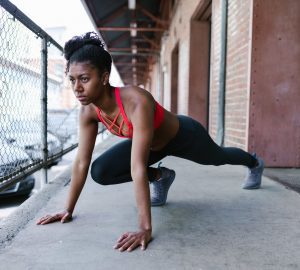Exercising is great! Don’t you agree? You work out and actively make yourself feel better and look more attractive. However, we can’t always find time to dedicate to exercise in our day to day lives. It is especially true for students: countless deadlines fit into, numerous academic projects and tasks to complete, and the on-going modules to keep up to.
Studying in university is always a hectic endeavor, so, no wonder that many completely forego exercising to devote their time to learning exclusively. However, this is a big mistake, because exercising can bring a lot of positives to students outside of keeping up a healthy lifestyle, like improve memorization, address mental issues, get better as a paper writer, and receive higher test scores.
Physical Activity Boosts Learning Capabilities
The link between exercise and heightened brain activity has been long studied and researched. Continuous physical activity significantly affects the brain chemistry to recondition it and make it excel in all cognitive activities. There are tons of evidence to believe that regular exercises considerably improve critical and lateral thinking, as well as enhance the memorization.
Unexpectedly enough, the type of exercises to affect our brains and cognitive abilities most efficiently and profoundly turned to be aerobics. Exercising, in general, influences us in 3 distinct ways. Firstly, you get improved sharpness, concentration, and motivation to complete various tasks. Secondly, exercise promotes the creation of stronger binds in our brains, which is basically how we retain information. Lastly, as a result of physical activity, more nerve cells get created.
Of course, the main task of learning is still up to us, but a boost in concentration and more brainpower to remember for longer periods is a definite help in studying.
Mental Health Benefits
Another positive of exercise is that it helps gain mental stability and control over your psyche. Being not that experienced and exposed to a lot of stress, students can develop some nasty mental issues. Nonetheless, the development of them can be inhibited with physical activity:
Exercise Allows to Lower Your Stress Levels
In their lives, students are constantly dealing with stress, both inside and outside of classrooms. The pressure of keeping up with the studies while trying to balance a healthy social life is hard on its own, and usually, students also have tons of personal and family-related concurrent issues to get a grasp on. Some students get overcome with the feelings of an emotional breakdown and extreme stress, which makes them spiral and enter very negative and dangerous behavior patterns.
Exercise is a great way to relieve your mind from stress, meditate over the things that bother you, and get at least a partial handle on the high-stress levels. Physical activity actually actively fights the consequences of chronically being under a lot of pressure. People who exercise immediately become more social, open, and easy-going.
Physical Activity Reduces Anxiety
In actuality, anxiety has its use as an emotion in our psyche. This emotional state is most commonly produced in us as a response mechanism to a real-life threat. Anxiety helps people stay alert and ready for unexpected events. Still, when people find themselves in this emotional state constantly, it quickly deprives such people of energy, both mental and emotional. People with anxiety disorder become “on edge” ready to go off into lockdown at about any moment in their lives where something relatively stressful happens.
Some students are known to be prone to anxiety and even panic attacks, which are the most severe manifestation of anxiety. It has been noted that students may occasionally fall victim to panic attacks during social interactions and during testing. Physical activity allows to relieve tension and creates a more stable attitude to various situations.
Exercise Fights Depressive Moods
It is a very well-known fact that physical activity produces one of the “happiness” hormones, endorphins. This element in people causes them to have and experience generally happy and satisfied feelings. Additionally, exercises elevate self-image in people, which is also a great help in fighting depression and breaking out of depressive cycles.
It is a crucial point because nowadays, many students suffer from depression and eventually spiral into underperforming academically and leaving studies for good. Exercise greatly reduces the possibility of that happening, as it contributes to the general mindset of well-being and content in students. Additionally, the extra dopamine releases from physical activity help students to gradually become more and more productive, which step-by-step pulls the students out of depressive cycles.
No Need to Go Overboard
If you’re a student and you have a lot currently on your plate, definitely don’t drop education to be able to spend a couple of hours each day in the gym. No, it’s possible to get the benefit from physical activity only by exercising once or twice a week. By having a healthy relationship with exercising, you will establish healthy relationships with other occupations in your life.









28 Comments
Comments are closed.